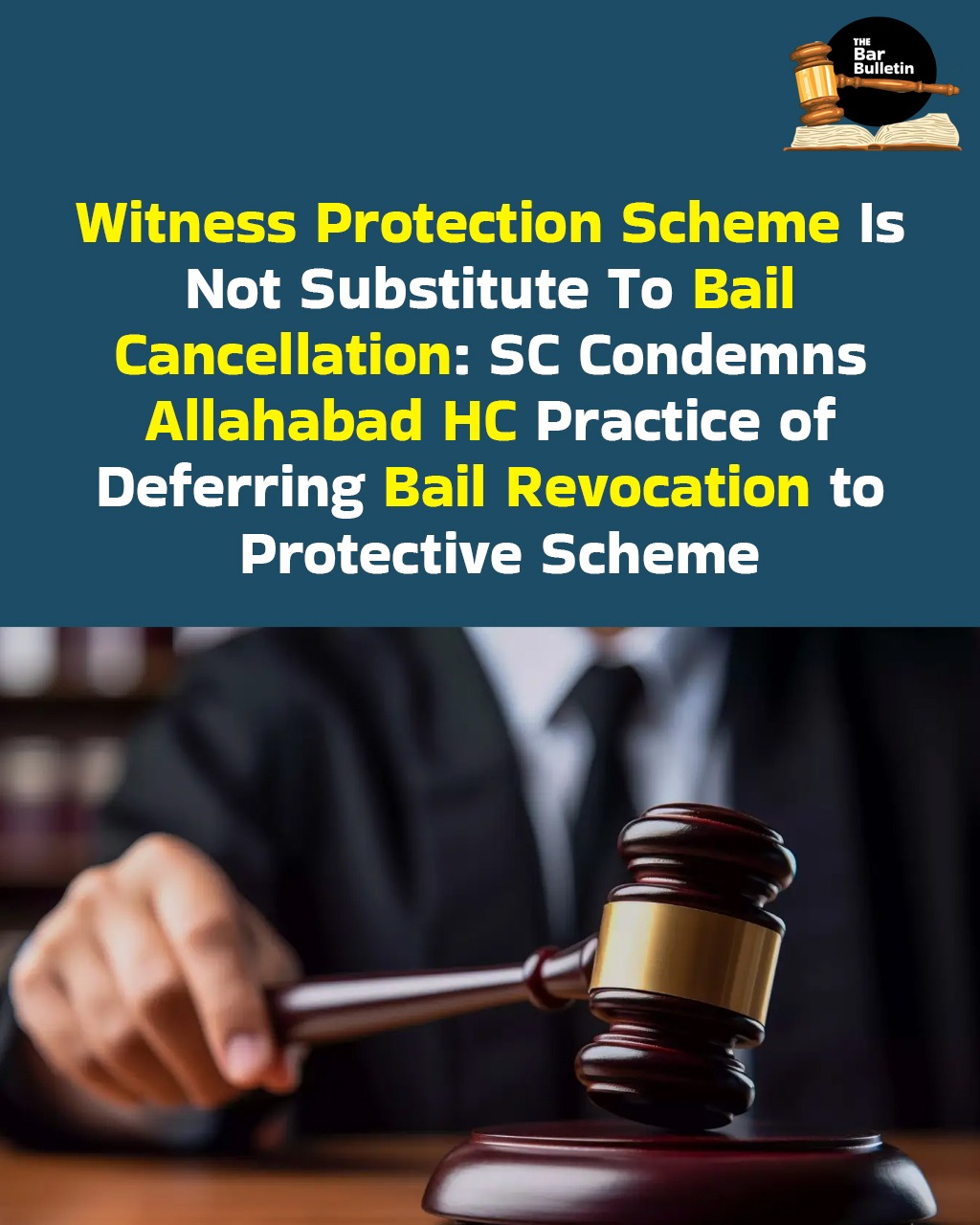The Supreme Court set aside the Allahabad High Court’s order declining to cancel bail despite allegations of witness threats by the accused. The Court remanded the matter to the High Court for rehearing on merits, instructing strict application of bail cancellation law rather than deferring to the Witness Protection Scheme.
The appellant, Phireram, who was also the original complainant and first informant, filed an application in the High Court of Allahabad seeking cancellation of bail granted to an accused on grounds that the accused was intimidating and threatening witnesses. The aforementioned bail had been granted with strict conditions including no witness tampering. The complainant challenged ongoing witness threats and sought revocation of bail under Section 439(2) of the Code of Criminal Procedure.
The accused had been granted bail by the High Court on 29 April 2024 with explicit conditions barring witness intimidation, evidence tampering, and requiring cooperation with the trial. After bail, the complainant alleged threats to witnesses, filing two fresh FIRs in support of these allegations. The High Court did not cancel bail but instead directed the complainant to avail protections under the Witness Protection Scheme, 2018, effectively refusing to address bail cancellation on merits. The complainant filed a Special Leave Petition before the Supreme Court challenging the High Court’s order.
The appellant argued that witness threats warranted cancellation of bail under established legal principles and the Witness Protection Scheme is not a substitute for bail cancellation, while the respondent-accused pointed out lack of notice at the time of High Court order. The State reported that investigation supports allegations of witness intimidation.
The Supreme Court bench comprising Justice J.B. Pardiwala and Justice Sandeep Mehta held that the High Court had misapplied the law by deflecting bail cancellation issues to the Witness Protection Scheme, which is curative and not a substitute for judicial cancellation of bail. It emphasized that bail is conditional liberty and must be revoked upon violation of conditions such as witness intimidation.
The Bench expressed serious concern and disapproval upon discovering a widespread and uniform practice within the Allahabad High Court, whereby a large number of bail cancellation applications were being dismissed through identically worded, template orders over the past two years. These orders routinely refrained from deciding on merits, instead directing complainants to seek protection exclusively under the Witness Protection Scheme, thereby effectively sidelining the judicial function of bail cancellation.
The Court sharply criticized this approach, underscoring that such delegation to the Scheme could not supplant the courts’ constitutional and statutory duty to act decisively in cases of bail violations, particularly where intimidation of witnesses is alleged. The bench lamented the failure of prosecutors to facilitate judicial guidance and called the practice “deplorable”.
The Bench referred to binding precedents including Zahira Habibullah Sheikh v. State of Gujarat[1] and Gudikanti Narasimhulu v. Public Prosecutor[2], and others emphasizing the critical role of witness protection and conditions attached to bail. It also highlighted the inadequacy of the Scheme alone to replace judicial cancellation powers and the necessity of court oversight in ensuring fair trial integrity.
In result, the Supreme Court quashed the impugned order of the Allahabad High Court that declined to cancel bail despite clear allegations of witness intimidation amounting to breach of bail conditions. It remanded the case back for immediate rehearing with directions for the High Court to exercise its judicial discretion and pass orders on cancellation of bail strictly based on merits and law.
The investigating officer was directed to submit a report on the relevant FIRs filed, alleging threats. The High Court must decide the matter within four weeks, ensuring that justice and fair trial are preserved by preventing abuse of bail conditions. Pending applications were disposed of, and copies of this order were circulated to all High Courts to curb misuse of witness protection as an alternative to bail cancellation, including specific communication to the Chief Justice of the Allahabad High Court.
Cases relied on:
1. Zahira Habibullah Sheikh v. State of Gujarat (2004) 4 SCC 158
2. Mahender Chawla v. Union of India (2019) 14 SCC 615
3. Gudikanti Narasimhulu v. Public Prosecutor, A.P. (1978) 1 SCC 240
4. State v. Captain Jagjit Singh AIR 1962 SC 253
5. Hari v. State of U.P. (2021) 17 SCC 111
6. Munilakshmi v. Narendra Babu 2023 SCC OnLine SC 1380
7. NHRC v. State of Gujarat (2009) 6 SCC 767
8. P v. State of M.P. (2022) 15 SCC 211
9. State through Delhi Administration v. Sanjay Gandhi (1978) 2 SCC 411
10. Raghubir Singh v. State of Bihar (1986) 4 SCC 481
[1] (2004) 4 SCC 158
[2] (1978) 1 SCC 240
Appearances:
Appellant: Mr.Rishi Malhotra, Senior Advocate
State: Mr. Vijendra Singh, Adv
Respondent 2: Mr.Nitin Saluja, Adv

